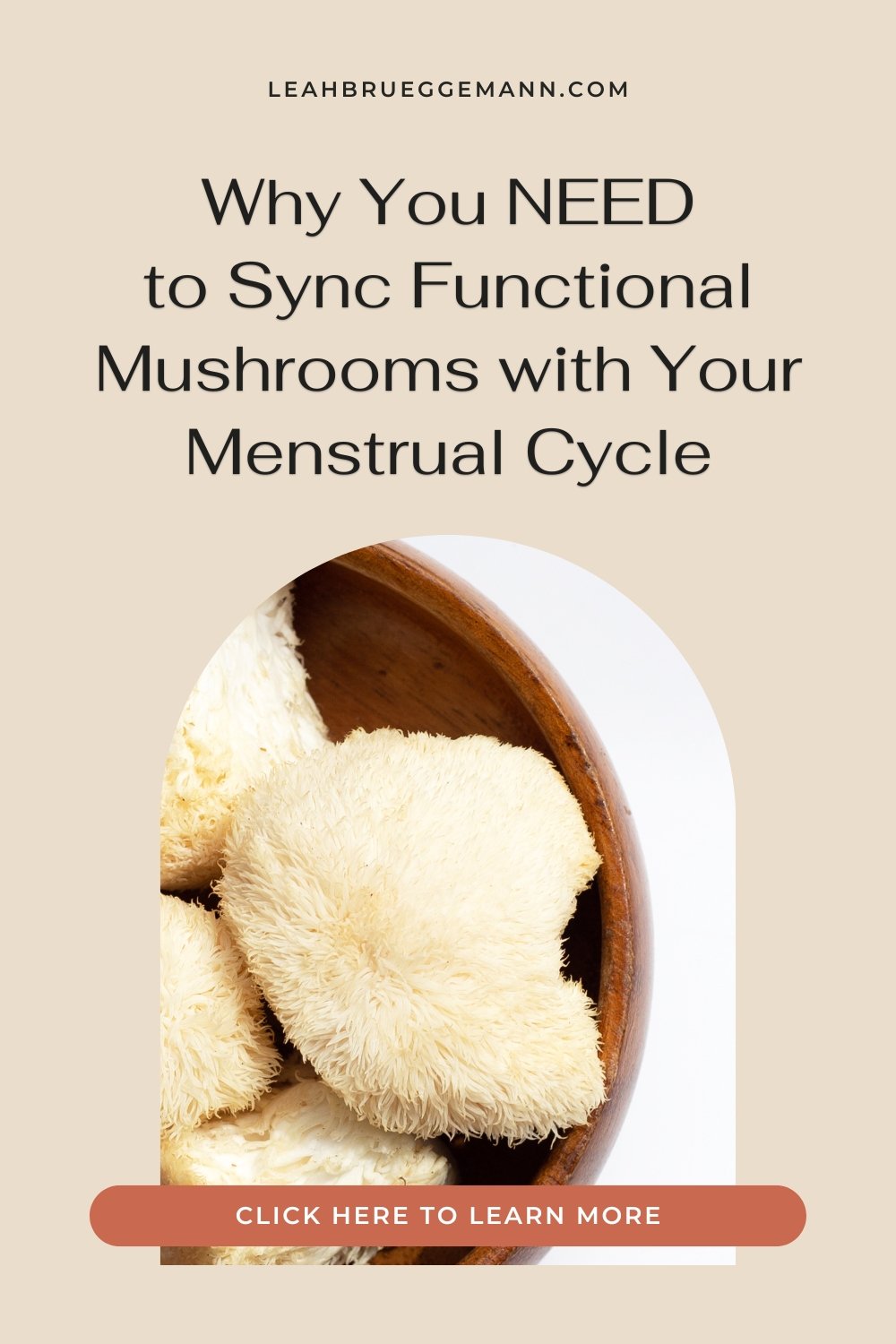How to Optimize Your Metabolic Health by Balancing Your Blood Sugar
We all know that drinking less soda and eating fewer processed foods will help us on our health journey but how do we go from where we are now to where we want to be? As people focus on being healthier, balancing their hormones, or just wanting to feel better overall, a great place to start is with your metabolic health.
That’s why I sat down with Lauren Kelley-Chew, MD, the Head of Clinical Product at Levels. Levels has created a glucose monitor system to help you see how food affects your health with personalized insights so you can optimize your nutrition and activity. We will talk a lot about how a continuous glucose monitor can be helpful, but we also focus on why understanding and managing your blood sugar is so important.
Dr. Lauren started out as an investor, learning about healthcare from the business side, and went on to get her MD through clinical training knowing that she wanted to work in medicine but in a way that might change the way medicine is practiced. During her clinical training, she noticed, as many of us have, that there are a lot of broken parts within the traditional healthcare system. Co-founding a digital therapeutics startup and working on emerging biosensor products eventually led her to Levels.
9 out of 10 Americans have some biomarker of metabolic dysfunction
When we think about blood sugar dysfunction, we think about type two diabetes and pre-diabetes. But those conditions are further down the line, when your metabolism has gotten so out of whack that now you're seeing these blatant issues with blood sugar. But really, you can have metabolic dysfunction for over a decade before it manifests into one of these more apparent issues.
“And I think, unfortunately, the way that things like PCOS are approached from the traditional healthcare system, it doesn't make sense. You say to someone, you're having a hormone imbalance, so we're going to give you birth control, to just basically blanket over that whole thing. Okay. Maybe it'll change your symptoms, but it doesn't change the underlying issue. And the underlying cause often is insulin resistance. So if you change that, you actually change what's happening in the body and you actually get to health.”
Our bodies are incredibly resilient.
We have this idea that we’re okay until there's a clear sign that our body is broken. But when we can feel that something is off in our body, that's when we want to make a change. We have this huge window of opportunity before the overt signs of dysfunction like type two diabetes or pre-diabetes surface. This window is where we can make changes that impact our long-term health.
We can put our bodies through a lot, but eventually, it's too much. If you're spiking your blood sugar often and you're releasing insulin to counter that for a while, that will work for a while. But eventually, the pancreas will get so tired of trying to deal with that, that it won't be able to keep up, and then your blood sugar will get out of control.
It doesn’t need to be that you never eat a carb in your life. It's more about treating your body in a way that reduces stress on it as much as possible. Life is stressful and stressors will come, but how can we make sure our bodies aren’t working harder than they need to be so we can stay healthy in the long run? Optimizing our metabolic health is a huge step in achieving that.
So why do we need a glucose monitor to improve our metabolic health?
“I think at this point, whether you're wearing a continuous glucose monitor, or you're just in the world, seeing all the information, all that information is confusing. And sometimes purposely confusing. There are basic tenets of health that many of us know, but the real challenge is doing those things. So for example, everyone says, don't drink sodas, or don't eat a lot of processed food. I think everybody knows that that would improve their health. But how do you get from the habits that you have now to the new habits? Continuous glucose monitoring is a tool for that. It gives you an amazing window into your health, which I think is for me was really kind of incredible to see. But even almost more powerfully, it's a tool that we can use to help people actually change their habits.”
Accountability leads to autonomy
With a glucose monitor, you eat something and then you’re able to see exactly what's happening in your body. And when you have that accountability and that kind of real-time feedback, it leads to a sense of empowerment and self-control. So then you understand your body, you understand the choices you make and how they impact your body which gives you more autonomy over future choices.
And it’s more than just the food you eat that affects it. The amount and quality of sleep you get, how stressed you are, all of it affects your blood sugar in ways that you may not even consider without a continuous monitor. And seeing the effects these things have, can motivate you to manage your stress better, give yourself more time for sleep, and invest in quality sleep, all because you’re able to see the direct effects.
I wore one of these during my pregnancy with Killian and my husband was making fun of me because he's like, ‘You have no issues with your blood sugar.’ And like I know, but just looking at the data. It's so cool. But this could be invaluable for someone with PCOS or insulin resistance or someone really struggling to lose weight.
The goal is metabolic flexibility
So often, we see women given birth control as the “answer” to their hormone imbalances or they’re told to just not eat carbs. But you need carbs for healthy ovulation. You need carbs for your thyroid function. So cutting them out completely is not the answer. But we don't see much information about how to actually manage that.
And foods affect everyone differently. This is what I found to be so enlightening, to me at least. So if I was going to choose a treat, just anything, you know, pairing it with your meal was the most important. But I found that something that actually had less blood sugar issues for me was like, a really high-quality, full-fat ice cream. I would have a little bit with my meal versus like a big serving of sugary candy on its own.
Seeing how the ice cream affected me personally, and how it didn't really affect my blood sugar that much when I ate it with a meal, helped me better understand how I can tailor my lifestyle as opposed to just a blanket statement of, ‘I can never have desserts or treats or sugar.’ It helped me find a way to enjoy foods in a way that worked into my health journey.
So I think that having that information is so powerful because you aren't wandering around like, ‘I can never eat carbs anymore,’ or, ‘I can never have treats anymore.’ It gives you more food freedom as you understand what it all means in terms of your own life.
Metabolic health looks different if you ovulate
There are so many fad diets out there that promise these amazing results but the testing, the studies, most of them survey male subjects. So that might work for male physiology, but males are not ovulating. Those results don’t factor in female nutritional needs for healthy ovulation and menstruation. The need for carbohydrates, nutritional needs, thyroid needs, they're different if you ovulate.
This is similar in some ways to intermittent fasting. There's a whole bunch of studies where the model has been male physiology, and it does not necessarily and probably almost certainly does not apply to female physiology. There's just not enough research out there. Because the female anatomy does respond differently depending on where they are in their cycle.
Insulin resistance throughout your cycle
In general, during the first half of the cycle, you have a lower insulin resistance, so a higher tolerance for carbs and sugar. Then, during the second half of your cycle, it's the opposite. So if you’re starting to see wonky changes, and more cravings, during that pre-period phase what can we do to stabilize it?
Dr. Lauren suggests starting with the basics - focus on your sleep, stress, movement, and diet. “This idea that it should be easy for us to do all of those things all the time, that's not necessarily true. So if you can only focus on a few of them, it's okay. It will still help.”
Dr. Lauren described a study that looked at women going about their daily lives and observed what they ate at different points in their cycles. The study found that in the second phase of their cycle, on average, the women were eating more than double the number of carbs than they had eaten in the first phase. So there's real physiology going on here.
This is to say that, while you are trying to optimize your blood sugar you have to respect the fact that it is going to look different throughout your cycle.
So that's why things like stress management, sleep quality, and intentional movement are where you set yourself up for success. By focusing on these core needs, you’re putting your body in a regulated space. This puts you farther from the fight or flight physiology so that when you have those carb cravings, you're much more able to make the choice that’s healthiest in that particular moment. If you have a good night’s sleep and have managed your stress, when you’re craving an entire loaf of bread you still have the mental capacity to understand that having a piece of bread with a whole bunch of fat and protein on it is going to satisfy that craving.
You don’t need to avoid blood sugar spikes altogether
One of the things that is really helpful when you’re wearing a continuous glucose monitor is that you get to see if your body is getting a rest from high blood sugar. Because the goal is not necessarily to never have any sugar or carbs. You can have a flat glucose line drinking oil, but that’s not a healthy diet that we want to support.
It's more that your body needs times of rest when insulin is not surging. If insulin is always surging you will not be able to lose weight and you may end up with unhealthy weight gain. Insulin spikes actually turn the switch on for fat storage and turn it off for fat burning. So if you are trying to fine-tune your eating, it’s important to make sure that there are times when your blood sugar is stable over several hours so that your insulin can take a break.
“And interestingly, in terms of menopause, this is very evolving research, because again, not nearly enough research dollars have gone into this. But definitely, it looks like there are links between hot flashes and blood sugar spikes.” So this is another example of how insulin resistance touches basically every system in the body. And studies have shown that as they age, women are more likely than men to experience issues such as increased cardiovascular risk, impaired glucose tolerance, and sleep disturbance. Which can in turn trigger a cascade of insulin-resistant stress hormones.
“So, in addition to just the overall desire to kind of feel alive and feel clear and not have hot flashes, and those things, there's also just a lot of risks that women encounter because of their physiology that I think we can really modify with reduced insulin resistance and just better blood sugar control.”
We can live a better life by knowing our bodies better
The amount of things that blood sugar impacts is just wild. When it comes to things like mood or hot flashes, women have been told it’s normal to feel that way and you just basically have to deal with it. And of course, it doesn't have to be your normal. We're increasingly realizing that so many of these things that we've considered normal, are actually just normal in the sense that they're happening to everybody, but they don't need to happen to everybody.
So many women have these big mood swings or anxiety. And they think, ‘That's just who I am. That's my personality.’ And of course, I think everyone's personality should be honored and everyone's personality is different. But many people who have stabilized their blood sugar, realize that actually, they're not moody or anxious in that way anymore. And that thing that they thought was just them, it's not them, it's just their blood sugar and they were able to live a better life by understanding their bodies better.
It’s amazing how much happier you can be, how much more energized you can be, just from balancing your blood sugar.
Dementia and Type 3 Diabetes?
There’s a lot of talk about the connection between blood sugar, insulin resistance, and dementia diseases such as Alzheimers so I asked Dr. Lauren if the medical community has found a connection. She says, “It's actually so linked to blood sugar that people many people are now calling Alzheimer's, type three diabetes.”
Wow.
“There's a lot of research on what the mechanisms are of that. And of course, the brain requires a ton of glucose to function, it may even be the largest user of glucose in the body. So you can imagine that when your glucose balance is off, of course, your brain will be impacted. Both in terms of its ability to function with the energy that's being supplied, but also other aspects of the sensitive balance that the brain needs to do its functioning best. For example, the functioning of the blood-brain barrier and how that is allowing the right nutrients to get in at the proper amounts and keeping other things out of all of these things, it looks like this can be disturbed through metabolic dysfunction.”
Okay, I get it. My blood sugar is important. How do I translate that to my plate?
This is what Dr. Lauren had to say about planning blood sugar balancing meals.
“So the first thing we're going for is nutrient density. You want to eat as many colored vegetables as possible. Like, you're really just trying to get in a lot of nutrition. And this is the reason I say that first is because I think when it comes to blood sugar, sometimes people switch into this mindset of it being all about the blood sugar. And yes, ultimately, we are trying to optimize blood sugar. But most importantly, we're trying to optimize nutrition to the body. So that's always first. Second, is always trying to have enough fat and protein on the plate so that you're not just predominantly eating carbs.”
When you eat carbs alone, your blood sugar will rise much higher and much more rapidly than when they're consumed alongside fat and protein. Fat and protein are digested more slowly so this helps you digest the carbs more slowly which will prevent that big blood sugar spike. And fiber from those vegetables helps to slow down the absorption of blood sugar.
So if you're packing your plate is full of colors, full of protein, fat, and fiber, you're on a good path.
And another easy thing you can do is change the order you eat your foods. If you eat carbs last, after you’ve even your fiber and fat and protein, it will be so much easier on your body to process that sugar from the carbs than if were to eat the carbs first.
And then if you really want to do your body a favor, when you're done with all of that go on a short walk after you eat, or do squats, really anything that gets those muscles working.
Education, continuous glucose monitoring, and more.
Levels offers a platform of products and services to help you manage, monitor, and understand your personal glucose levels. They have continuous glucose monitors as well as home testing labs and professionals who can help you understand how the puzzle pieces fit together. Levels is a service I’ve used and loved and I think it can be a fantastic way to build an understanding of how to fine-tune your metabolic health in ways that will benefit you well into the future.
Use code LEAHB for 2 free months with Levels!
The recommendations presented in this blog are not a substitute for medical advice from a qualified doctor. Before making any changes to your diet and lifestyle, please consult with your health care provider.
Some of these links contain affiliate links.




